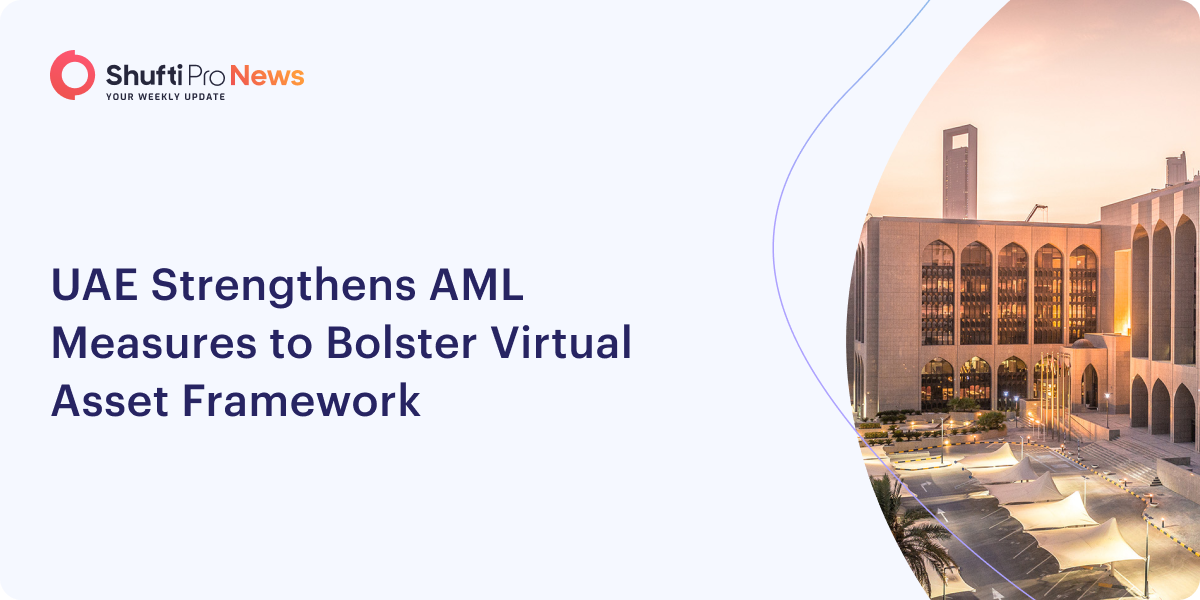UAE Strengthens AML Measures to Bolster Virtual Asset Framework

The UAE’s anti-money laundering and counter-terrorism financing department stated it continues bolstering the security system to regulate crypto firms and raise the operation of virtual assets in the country’s secure environment.
The director-general of the UAE Executive Office of Anti-Money Laundering and Counter-Terrorism Financing (EO AML/CTF) claimed they are working to strengthen their crypto legal framework to ensure the virtual asset service providers operating in a secure environment and promptly growing with effectiveness. It will support the country’s financial system to attract significant investors and prevent bad actors from exploiting the virtual assets industry. The director-general, Hamid Al Zaabi, stated, “The UAE continues to raise the effectiveness of its regulatory framework for VAs and VASPs to attract innovative firms and keep out illicit actors seeking to exploit the global financial system. We are delighted to partner with the IMF team to give supervisory authorities across the world the opportunity to strengthen international cooperation and be part of the design process of an important new methodology for VA/VASP supervision.”
He asserted these remarks in the “Fintech Roundtable,” which was arranged by the International Monetary Fund (IMF) in collaboration with the EO AMLCTF and Anti-Money Laundering/Countering the Financing of Terrorism (AML/CFT) supervisors from the global community in Abu Dhabi. 15 countries and organisations attended this meeting to discuss the effect of money laundering and other financial crimes on the integrity of the global economy, including Australia, the Bahamas, Bahrain, the Cayman Islands, Denmark, Estonia, Finland, France, Japan, Kenya, Namibia, Saudi Arabia, the United Kingdom, the UAE, and the United Nations Office on Drugs and Crime. The deputy division chief of legal department at the IMF, Chady El Khoury, stated, “It is critically important that countries carry out robust AML/CFT risk-based supervision of VASPs, and that assessing the associated ML/TF risks is the starting point of an effective AML/CFT supervisory regime.”
Workshop participants brought up several concerns, including gaps in gathering and analysing information and regulatory agencies’ lack of resources and expertise. They both agreed that improved ML/TF supervisory risk assessment models were necessary in order to effectively assess VA and VASPs, as well as robust coordination across AML/CFT supervisory authorities. The UAE has finished a thorough assessment of the advancements achieved in AML/CFT during the initial half of 2023, and the results demonstrate an impressive increase overall. Al Zaabi highlighted that the review’s findings show how strong, versatile, and efficient the UAE’s national AML/CFT system is. He also stressed the need for robust technology in financial institutions to prevent bad actors from exploiting the fintech sector.
Suggested Reads:
UAE TO BE REMOVED FROM FATF GREY LIST IN 2024
UAE ISSUES GUIDANCE TO REGISTERED UNLICENSED CRYPTO FIRMS
UAE CONFISCATES ASSETS WORTH $354 MILLION TO CRACK DOWN ON MONEY LAUNDERING

 Explore Now
Explore Now













